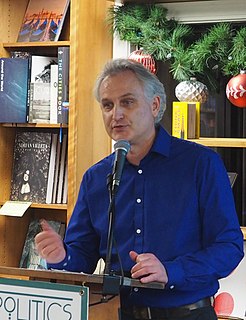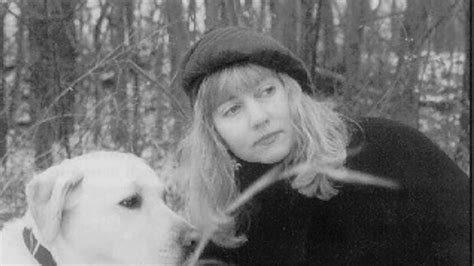A Quote by David Biespiel
I'm not going to tell people how to write, but we do have a skill set, and the more we put ourselves out into the world as poets, as a sort of poet of the tribe, as representatives of metaphor, and try to claim space for metaphor in the inner life, that's going to be important and be helpful to poetry and bring a tension for poets writing about whatever they choose.
Related Quotes
It's difficult to put your own bare ass out on the limb every time you sit down to write a poem. But that's really sort of the ideal. Because if we don't discover something about ourselves and our world in the making of a poem, chances are it's not going to be a very good poem. So what I'm saying is that a lot of our best poets could be better poets if they wrote less and risked more in what they do.
I tend to like the way poets form communities. Writing can be lonely after all. Modern life can be lonely. Poets do seem to be more social than fiction writers. This could be because of poetry's roots in the oral tradition - poetry is read aloud and even performed. I'm just speculating, of course. At any rate, because poets form these groups, they learn from one another. That is one of the best things about being a poet.
Once I started writing all the time and interacting with poets, I made a conscious decision to identify myself as a poet. It's funny how much a single word can provide focus and direction. As soon as I claimed that identity, I started clearing more and more space for poetry in my life and applying poetic tools to other areas of my life. The world became a different place, and I witnessed it through different kinds of eyes.
Creativity is more about taking the facts, fictions, and feelings we store away and finding new ways to connect them. What we're talking about here is metaphor. Metaphor is the lifeblood of all art, if it is not art itself. Metaphor is our vocabulary for connecting what we are experiencing now with what we have experienced before. It's not only how we express what we remember , it's how we interpret it - for ourselves and others.
That’s what i love about poetry. The more abstract, the better. The stuff were your not sure what the poets talking about. You may have an idea, but you cant be sure. Not a hundred percent. Each word, specifically chosen, could have a million different meanings. Is it a stand-in ?a symbol for another idea? Does it fit into a larger, more hidden, metaphor? ...I hated poetry until someone showed me how to appreciate it. He told me to see poetry as a puzzle. Its up to the reader to decipher the code, or the words, based on everything they know about life and emotions.
A lot of people think they can write poetry, and many do, because they can figure out how to line up the words or make certain sounds rhyme or just imitate the other poets they've read. But this boy, he's the real poet, because when he tries to put on paper what he's seen with his heart, he will believe deep down that there are no good words for it, no words can do it, and at that moment he will have begun to write poetry.
I certainly was surprised to be named Poet Laureate of this far-out city on the left side of the world, and I gratefully accept, for as I told the Mayor, "How could I refuse?" I'd rather be Poet Laureate of San Francisco than anywhere because this city has always been a poetic center, a frontier for free poetic life, with perhaps more poets and more poetry readers than any city in the world.
When we look at the arts and letters in America, especially if we look at poetry, and poetry set to music, this dialogue, we have this very powerful beautiful, eclectic, diary, or narration of being in America, being American, participating in America, becoming more of America and also as an American, the American creative spirit, which is quite interesting. Our composers and poets have spent more time writing and thinking and speaking out of what it means to be a composer or poet as well as to be an American, or a composer or poet In America; both relationships.
There's not a big range in the political poetry of the last year, or not a political range. On the one hand, no poet that I know of who writes in English in the United States is anything but a humanist. So all poets, including myself, seem to be under that umbrella. We just don't have Rush Limbaugh poets, Ann Coulter poets.






































